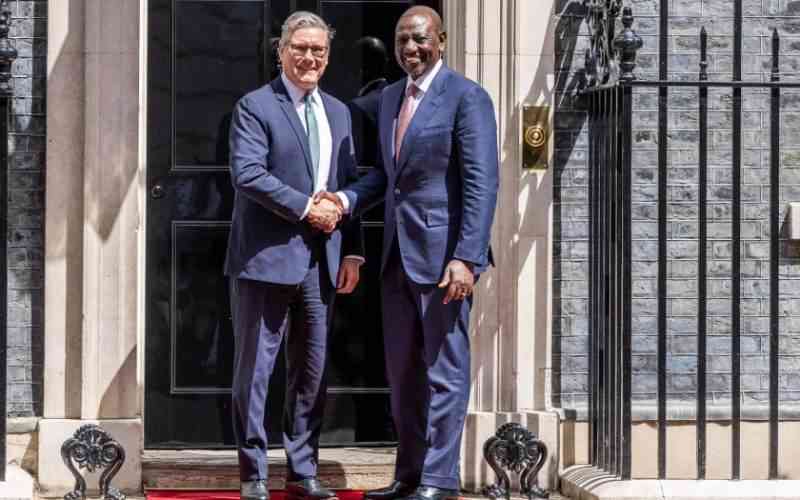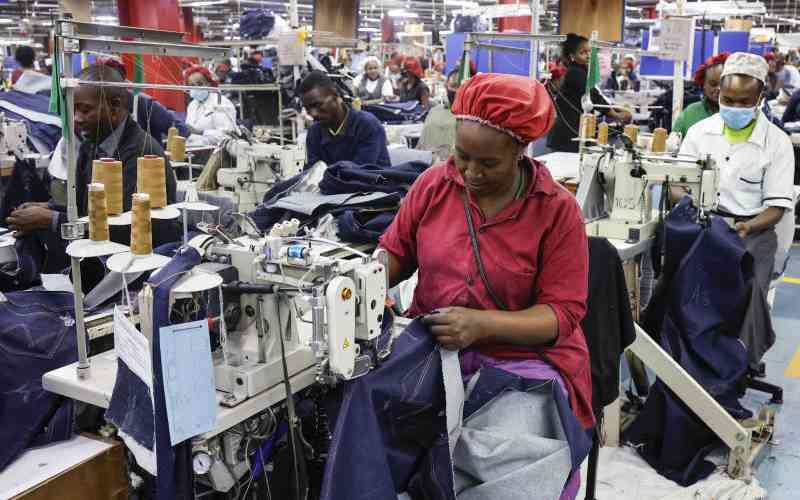
As more women get into leadership positions in different fields and in government, they should use that opportunity to push for gender equality and a better Kenya.
Women in power have the ability to make big changes in society. They have the chance to create workplaces where everyone feels included and push for a bigger shift in culture where being a man or woman does not stop you from getting opportunities or advancing.
Take Mama Ngina Kenyatta, Kenya’s first First Lady, for example. She used her position as the First Lady to fight for women to be included in the security field.
After Kenya became independent in 1963, women had a hard time getting into many jobs, including the security forces.
The security sector, comprising the police, military, and other law enforcement agencies, was male dominated, rooted in traditional gender roles that limited women’s participation in anything considered physically or mentally demanding.
The few women who got to work in the new security services were restricted to office work, which made it seem like women were not able to fight or make big decisions about national security.
Mama Ngina leveraged her position as First Lady to change this; to champion the inclusion of women in the security sector. She eventually opened the door for recruitment of women in the security sector.
Today, women can look at Mama Ngina’s example and use their positions to make life better for their fellow women and society at large.
There is an easy way women who are married to leaders can help enhance gender equality and the general state of their countries—talking to their husbands. It might not seem much, but smart women can use their positions as wives of leaders to bring about change.
Some spouses of leaders have already done that and have impacted communities and even the entire country positively. They include Margaret Kenyatta who used her position as First Lady to spearhead the Linda Mama programme that provided free maternity services across the country.
Infant mortality
Tessie Musalia has also used her position as spouse to Prime Cabinet Secretary Musalia Mudavadi to spearhead her Okoa Malaika initiative, an offshoot of Mudavadi Foundation, to bring down infant mortality rates in Kenya through donation of neonatal equipment like incubators to hospitals, bringing hope to underprivileged families and those in remote areas seeking specialised healthcare for the new-born babies. Tessie’s “Stara Ya Wazee” programme advocates for the rights of the elderly by pushing for full implementation of protective policies by amplify their voices to ensure their needs are met.
Wives of politicians can request their husbands to support important laws, and that way help shape what happens in the country.
Currently, several bills seeking to protect women and children and enhance their inclusion in the society are pending in Parliament due to lack of support.
An omnibus bill is currently being crafted to amend the Children Act (2022), the Sexual Offences Act (2006), the Basic Education Act (2013), the Marriage Act (2014) and the Counter-Trafficking of Persons Act (2010) to close loopholes exploited by sexual predators.
Stay informed. Subscribe to our newsletter
Some of these laws that would help protect women and give them more chances have been pending because they lacked enough support.
The women in the Kenya Women Senators Association are pushing for this law, which would punish offenders twice as much. Wives of Members of Parliament can help to have these bills passed by using their proximity to the leaders.
Women who are married to leaders can also have a say in what happens in the country and in companies. They can use their positions to influence and catalyse decisions that help women and girls, support rules that are good for women, and help other women become leaders in the future.
By following the example of Mama Ngina, women can change Kenya for the better. Let’s use this chance to create a better future for ourselves, our daughters, and our country.







